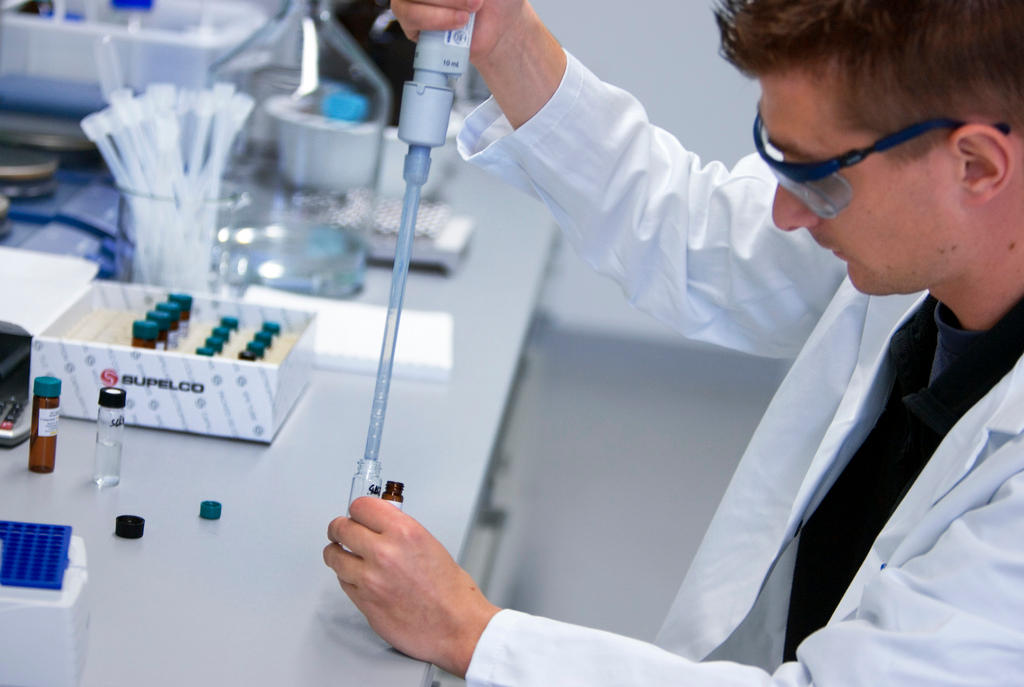
Too few pharma companies prioritise access to medicines

A ranking of the world’s biggest pharmaceutical companies finds that progress in expanding access to medicines in poorer countries is concentrated among five pharmaceutical companies and on five diseases. Novartis and Roche both moved up in the ranking to 2nd and 10th, respectively.
The 2018 Access to Medicine IndexExternal link, published on Tuesday, is an independent ranking of 20 of the leading pharmaceutical companies on their efforts to improve access to medicine in low- and middle-income countries.
British pharmaceutical company GSK retained its position at the top of the index for the sixth year in a row followed by Basel-based Novartis, which jumped one spot ahead of Johnson & Johnson and Merck KGaA. The other Swiss company in the ranking, Roche, jumped nine spots into the top ten.
The index, which is supported by the UK and Dutch governments and the Bill & Melinda Gates Foundation, measures companies in seven areas of corporate behaviour including research and development (R&D), pricing, and product donations.
Swiss highs and lows
Novartis was the top scorer in the category of general management, which includes aspects such as companies’ level of commitment and transparency. The index praised the company’s commitment to integrate access strategies across its drug pipeline on communicable and non-communicable diseases.
+Read more about Novartis’s personalised cell therapy for certain blood cancers
Where both Novartis and Roche performed weaker was on patents and licensing. Danny Edwards, the research lead for the index, explained in an emailed reply to swissinfo.ch that “both Swiss companies are weaker in this analysis than other companies when it comes to sharing intellectual property (IP) with researchers in order to support R&D for low- and middle-income country needs.”
Both companies also are weaker compared to peers in licensing their patented marketed for generic manufacture – a model that has worked very well in HIV/AIDS to support more affordable supply of medicines, explained Edwards. Novartis also falls back in this report concerning an incident regarding the IP around imanitib (Glivec) in Colombia.
Leading the pack and the rest
The ranking acknowledged important progress on the path to expanding access but that most of this is concentrated among a select group of companies and diseases. For example, five companies account for 63% of R&D for the 45 priority diseases identified by the World Health Organization (WHO).
Moreover, R&D is focused on five diseases, with half of R&D projects targeting malaria, HIV/AIDS, tuberculosis, Chagas disease and leishmaniasis – the leading causes of death in low- and middle-income countries of which there is also significant global support.
“The fact that a handful of companies are carrying the bulk of the priority R&D load shows how fragile the situation is. A retreat by even one of these players would have a significant impact,” said Jayasree K. Iyer, executive director of the Access to Medicine Foundation. “If more companies joined this group, that would bring much needed resilience.”
New look at non-communicable diseases
The index also examined company efforts to increase access to cancer products for the first time this year. Novartis markets the largest proportion of the 72 products identified by the index, including half that have an access initiative attached to them.
Efforts during the R&D phase to plan access initiatives for cancer products lag far behind those for communicable diseases. Most plans to expand access of such drugs focus on pricing but their reach is limited, most commonly focused on Egypt, Pakistan and Mexico.

In compliance with the JTI standards
More: SWI swissinfo.ch certified by the Journalism Trust Initiative




























You can find an overview of ongoing debates with our journalists here . Please join us!
If you want to start a conversation about a topic raised in this article or want to report factual errors, email us at english@swissinfo.ch.